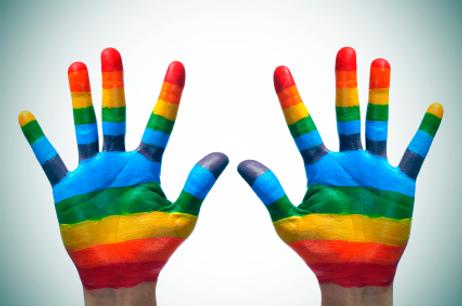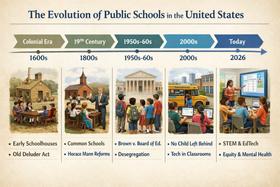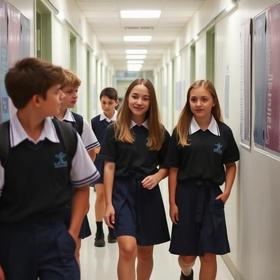Ever since the Internet has come into the public school classroom, filters have been used to keep inappropriate and obscene information and pictures away from students. However, the ACLU has recently been alerted to the fact that pornography isn't the only thing not making it into public school classrooms today. Many schools across the country are using their filtering tools to weed out information for LGBT students – even when the websites in question do not fall into the pornographic or inappropriate category. What's worse is that many of these same schools allow anti-gay websites to be accessed on campus.
What's In and What's Out
The problem came to the attention of the ACLU a few years ago when a high school student in Tennessee was searching for information about scholarships for gay and lesbian students. The student was unable to access any of the websites that provided such information, according to a report on Digital Life. However, the student did discover websites advocating that gay and lesbian behavior can be reformed or overcome. The student notified the ACLU about the issue, and the ACLU sued the school and several others in Tennessee with similar policies.
On their website, the ACLU asserts, "Blocking all LGBT content violates students' First Amendment rights to free speech. They also violate the Equal Access Act, which requires equal access to school resources for all extracurricular clubs, including gay-straight alliances and LGBT support groups." The ACLU is now on the lookout for other schools around the country using similar filters to ensure gay and lesbian students have the support and access they need, no matter where they live and go to school.
Jay Kaplan, ACLU of Michigan LGBT Project staff attorney, told MSNBC, "The use of Internet filtering tools to censor websites that advocate for the fair treatment of LGBT people is wrong and illegal. Many of these websites provide much-needed support and resources for LGBT youth during a critical time of their lives. By blocking LGBT websites, schools are sending a terrible message to students that LGBT voices are to be ignored and silenced."
Don't Filter Me
As a response to the filtering issue that appears to be a problem in many schools today, the ACLU has launched the "Don't Filter Me" campaign in an effort to identify more schools using filtering to censor pro-gay websites. The program became a reality when the Yale Law School LGBT Litigation Clinic contacted the ACLU about helping them with their LGBT Project. With the help of Yale, a YouTube video was published encouraging students and others to report additional incidences of discrimination through Internet filtering.
Shortly after the video was posted, the ACLU reported on Digital Life that they sent letters to schools in Michigan, Texas, Pennsylvania, and Virginia, demanding they stop censorship of content geared toward LGBT students. The ACLU has also provided an online form with a list of websites and invitations for students to try to access them while on campus. If access is denied, the ACLU wants to know which websites were censored, with screen captures, when possible.
Vineland High School the First in New Jersey to Lift Ban
Students and staff who had complained about the filter used at Vineland High School in New Jersey were happy to discover the school voluntarily removed the filter in response to the complaints they received. No one knows exactly how long the filter was in place, but it even kept students from researching important gay and lesbian figures in the state's history. The filter was removed on March 31, days after the ACLU had filed an Open Public Records Act to receive documents related to the matter, according to a report at New Jersey Newsroom.
The Vineland student that brought the filter to the attention of the ACLU was Justin Rodriguez. Rodriguez said that he had voiced his concern about the filter to school administrators multiple times, but had never received a response. Rodriguez was contacted by the ACLU after filling out the form on the "Don’t Filter Me" website. The day after the filter was removed, Rodriguez was called into the vice principal's office, where he was alerted to the change.
This video from CNN reports on schools that are banning discussion of LGBT topics.
Prince Williams Schools Considering the Matter
Prince Williams schools in Washington D.C. have also been notified by the ACLU letter to remove similar filters. According to the ACLU, the schools currently filter out websites like Gay Lesbian and Straight Information Network, It Gets Better and Day of Silence. However, the school's computer system does allow access to websites that advocate converting from a gay to a straight lifestyle, such as People Can Change and Parents and Friends of Ex-Gays.
The Prince Williams schools are in a quandary since the filters used in the high schools are the same tools used in elementary schools. According to an article at the Washington Post, a spokesman for the school has said the district has received the ACLU's letter and is currently reviewing the request, as well as the requirements for filtering imposed by the federal Children's Internet Protection Act and the Virginia code.
Joshua Block, staff attorney with the ACLU LGBT Project summed it up with these words, "There is no legitimate reason why any public school should be using an anti-LGBT filter…These filters are designed to discriminate and are programmed specifically to target LGBT-related content that would not otherwise be blocked as sexually explicit or inappropriate."
The ACLU will continue its fight against discriminatory practices in schools through the use of Internet filtering. Students who have experienced such discrimination can contact the ACLU through their "Don't Filter Me" website.
Questions? Contact us on Facebook @publicschoolreview














